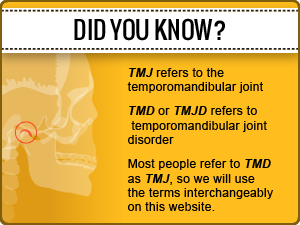Sleep Disorders & Depression
Sleep disorders can lead to depression
 Regular sleep is a necessary part of life. If you fail to get enough of it because you are suffering from a sleep disorder you will bear the consequences. Normally, when you start to feel sleepy at night, it’s a warning sign telling you to prepare yourself for sleep. To remain healthy, the amount of sleep necessary may well be up to eight hours a day. This varies from one individual to another.
Regular sleep is a necessary part of life. If you fail to get enough of it because you are suffering from a sleep disorder you will bear the consequences. Normally, when you start to feel sleepy at night, it’s a warning sign telling you to prepare yourself for sleep. To remain healthy, the amount of sleep necessary may well be up to eight hours a day. This varies from one individual to another.
If your body fails to get the right number of hours and at the right depth it can easily have an impact on your daily life.
You may:
- become irritable
- start to suffer memory loss
- lack concentration
- make mistakes and
- suffer from depression
It is best to try and solve your sleep disorder rather than live with it.
The connection between sleep disorders and depression
The most common reason for sleep deprivation is something called sleep apnea. This is a condition in which you lose your ability to breathe properly and keep waking up gasping for air. This can happen several times an hour while trying to sleep. The amount of sleep disturbance due to sleep apnea may be too much for the body to bear.
Obstructive sleep apnea (OSA), for instance, one of the two main types of sleep apnea, has links to depression. Studies show that people suffering from depression are five times more likely to suffer from OSA. Fortunately, there are ways to help those who suffer from both sleep apnea and depression.
Dental treatment could help you get back to healthy sleep
With the increase in knowledge about sleeping disorders, there are solutions available which can help you get more sleep. One popular dental technique provides the sufferer with OSA with continuous positive airway pressure (CPAP). This allows a continuous flow of air throughout the night so sleep problem are reduced and you will not snore nearly as much.
Research shows that the use of this device relieves the symptoms of depression in the long term; however, user of this machine often find it uncomfortable and noisy. There is another method that can be successful if you suffer from mild to moderate obstructive sleep apnea, and serves as a good alternative to CPAP. An oral appliance can be fitted that positions the jaw and tongue so that it sits further forward in your mouth. This allows the airway to remain open.
There are two types to choose from:
- A mandibular advancement device (MAD) when the jaw is pushed forwards.
- A tongue retaining device which prevents the tongue from obstruction the airway
Learn more
Depression is a complex medical issue and there are a variety of ways that medical professionals handle it. To be able to treat depression properly, you really need to work out the root cause of it.
If you think that your inability to sleep well at night is causing you to become depressed, then dental treatment for your sleep deprivation may help to become less depressed and feel more confident about your life in general.


Just wondering if my insurance covers this. I have TMJ and difficulty with adequate sleep. I have BCBS PPO and I have Delta Dental insurance.
Blue Cross Blue Shield generally will cover sleep apnea appliances under terms of their contract.
There are many types of appliances available. The RNA version of the DNA Appliance can treat and in many cases cure sleep apnea. This link is to patient testimonials for oral appliances: https://www.youtube.com/watch?v=haxLDg8ZZfA&list=PL5ERlVdJLdtnRTuMltDKltag7IQx05-0V
The DNA Appliance can grow larger airways: https://www.sleepandhealth.com/tag/dna-appliance-epigenetic-orthodontics/